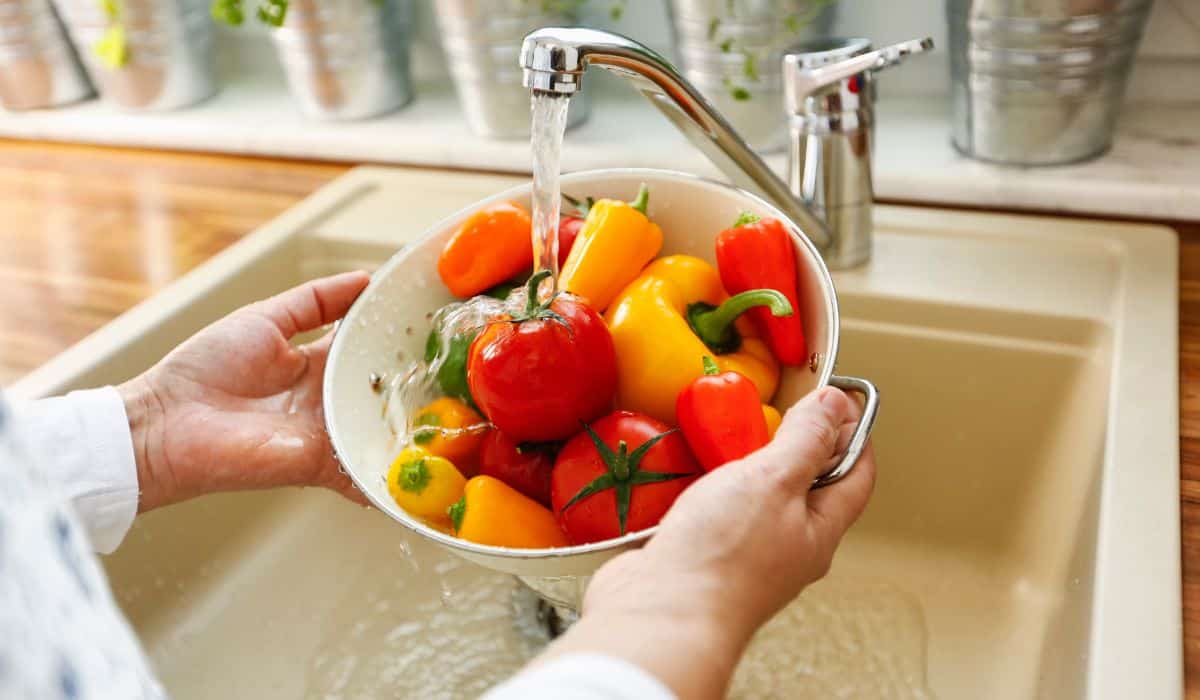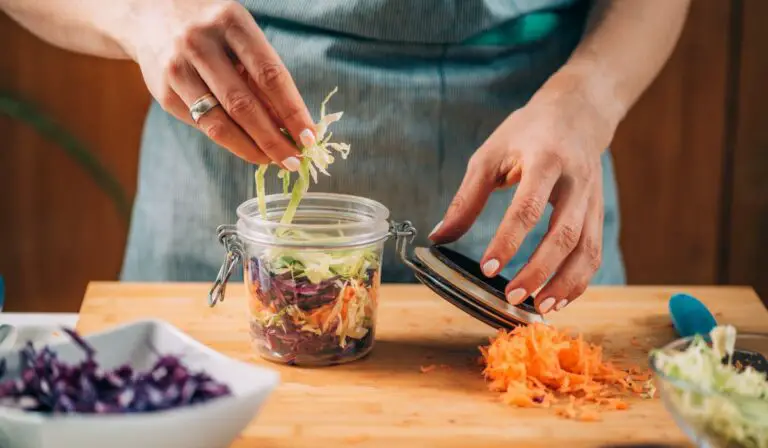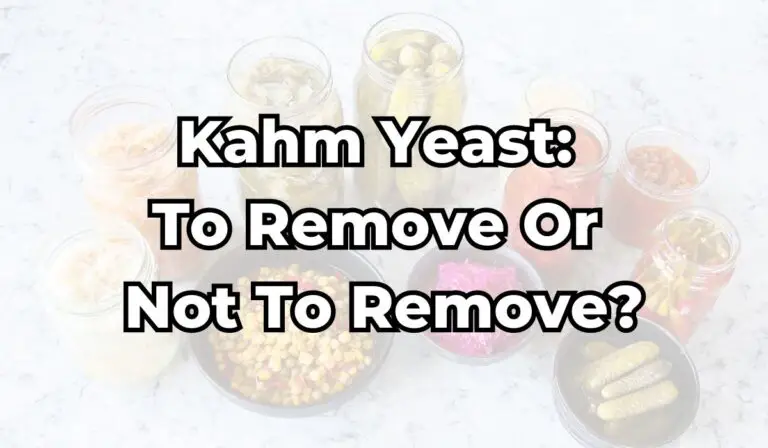Should You Rinse Your Fermented Vegetables?
Fermenting vegetables is a great way to preserve and add flavour to your veggies. Not only does this process help to extend the shelf life of your produce, but it also can add a unique taste to your favourite dishes.
But should you rinse your fermented vegetables after they are finished fermenting?
The short answer is you shouldn’t rinse your fermented vegetables after they have been fermented. Rinsing your fermented vegetables is unnecessary and can do more harm than good.
In this blog post, we’ll explore why you don’t need to rinse your fermented vegetables, the potential damage that could be done by rinsing them, and tips for ensuring your ferment is successful.
Why You Don’t Need to Rinse Fermented Vegetables

To start, it’s important to note that you should always wash your vegetables before fermenting them. This process will remove any dirt, bacteria, or other contaminants that may have come in contact with your produce.
Once your vegetables have been washed and are ready for fermenting, there is no need to rinse them when they have finished fermenting. Doing so can be damaging to your ferment.
This is because rinsing your vegetables after they have been fermented can remove some of the beneficial bacteria produced during the fermentation process. However, it won’t remove all bacteria and all benefits, as the vegetables ferment as a whole and not on a surface level only.
In addition, rinsing your vegetables can also dilute the brine, which helps to preserve the ferment. The brine is a salty liquid created during the fermentation process and helps create an environment that is unfriendly to harmful bacteria. If you rinse away the brine, you could be introducing harmful bacteria into your ferment and compromising its quality.
Potential Damage Done by Rinsing Fermented Vegetables
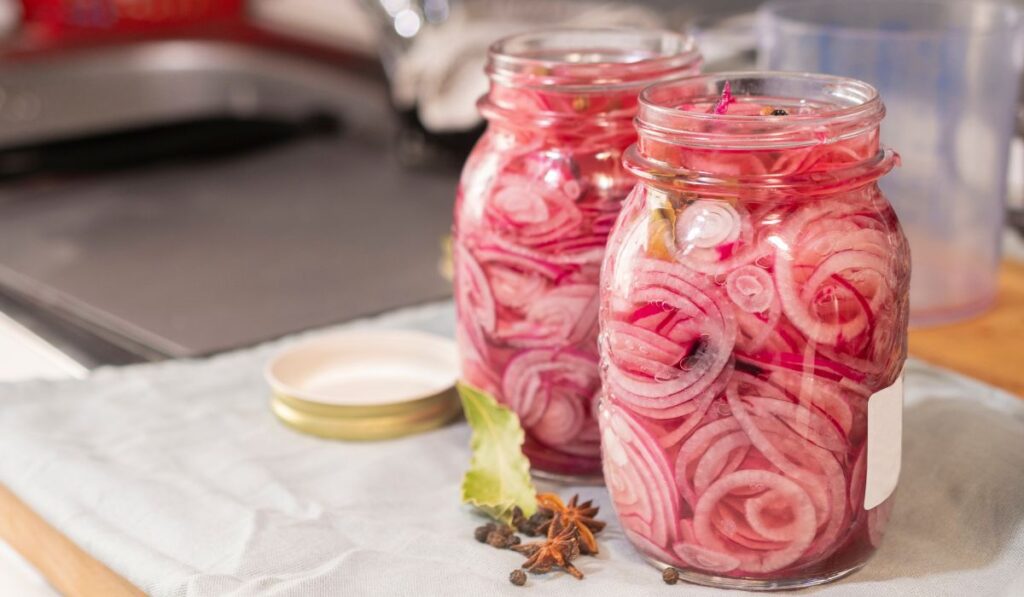
If you do choose to rinse your fermented vegetables, there are a few potential issues you could run into.
First, as mentioned above, you could be introducing harmful bacteria into your ferment. This could lead to spoilage and make your fermented vegetables unsafe to eat.
Second, you could be washing away some of the beneficial bacteria that give your fermented vegetables their unique flavour and health benefits.
Finally, you could wash away some of the flavours of your vegetables. This could be especially true if you are fermenting vegetables with a strong flavour, such as garlic or onions.
The Only Reason To Rinse Your Fermented Vegetables
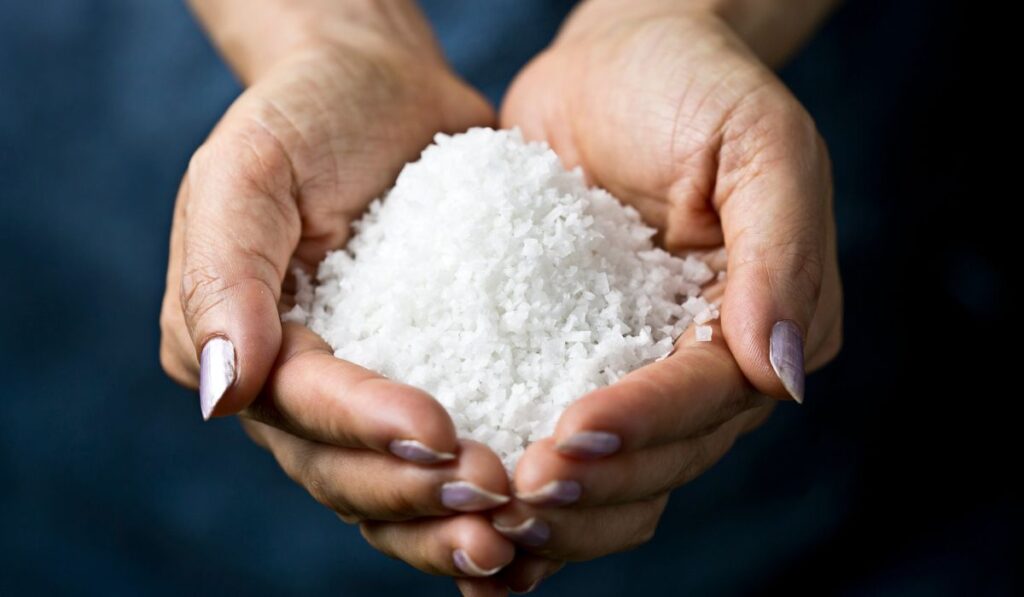
The only reason to rinse fermented vegetables (after fermentation) would be to remove excess salt. If your ferment is too salty and you are trying to find a way to salvage it and don’t want to leave it fermenting for longer, rinsing could be a solution. Remember that some other flavours might be washed away with the salt, as discussed above.
If you decide to wash your fermented vegetables before consumption, do it only before eating them and only the amount you intend to eat. Doing it this way, you will manage to preserve your ferment for longer, as most of it will still be inside the brine.
If you think your vegetable might be spoiled and want to rinse them to try to save them, please check this article to assess it further. But remember, rinsing a spoiled ferment won’t bring it back to life.
Tips for a Successful Ferment
If you want to ensure that your ferment is successful, there are a few tips you should keep in mind:
- Always wash your vegetables before fermenting them. This will help to remove any dirt, bacteria, or other contaminants that may have come in contact with them.
- Use a brine solution to ferment your vegetables. This will help create an environment that is hostile to harmful bacteria while preserving the ferment.
- Be sure to use a weight to keep your vegetables submerged in the brine. If your vegetables are not completely submerged, they could spoil or become contaminated with harmful bacteria and mould.
- Monitor your ferment closely. Look for signs of spoilage, such as bubbles or discolouration, and discard any vegetables that seem to be spoiled.
- Store your ferment in a cool, dark place. This will help to keep your vegetables fresh and ensure that they last as long as possible.
Conclusion
Rinsing your fermented vegetables is not necessary and can actually do more harm than good. Doing so can introduce harmful bacteria into your ferment, wash away beneficial bacteria, and dilute the brine that helps to preserve the ferment. To ensure a successful ferment, be sure to wash your vegetables before fermenting them, use a brine solution to ferment, use a weight to keep the vegetables submerged, and store your ferment in a cool, dark place. Following these tips will help to ensure that your ferment is successful and your vegetables are safe to eat.

